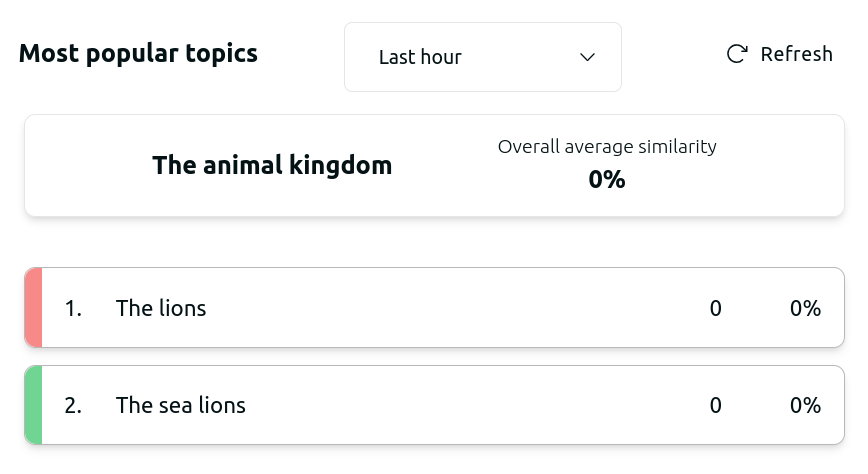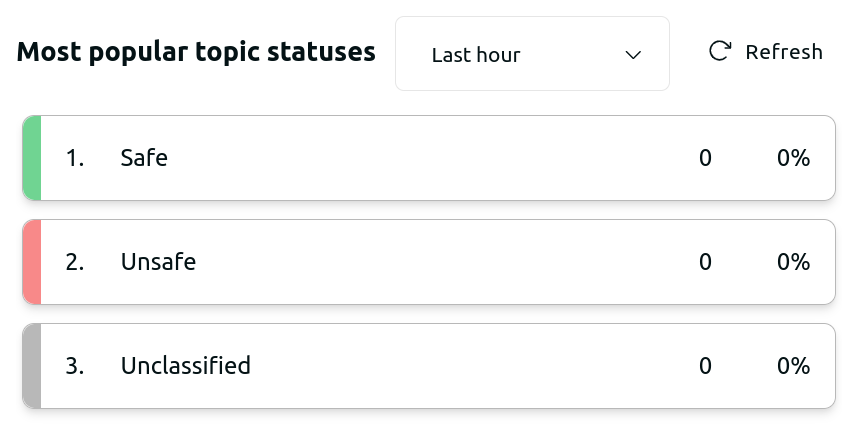Analytics
This feature is currently in beta. We are experimenting with ways to present the informations. If you have any feedback, please reach out to us! (contact@fireraven.ai)
The analytics feature of the Fireraven Secure Chatbot is a useful tool to get insights on how your chatbot is being used.
To get started, head to the chatbot of your choice. Once on the conversation page, click the Analytics button beside the Configure Chatbot button.
Consult the analytics
There are currently 3 ways to analyze your chatbot.
- By most popular topic
- By most popular state
- In conversation
Most popular topic
The most popular topic section shows the 10 most popular topics for the selected period. You can see from left-to-right the topic state (safe, unsafe, etc.), the topic name, the number of messages associated with this topic and the average similarity between the messages and the topic.

Each topic can be selected to further understand how this topic was used. From there, you can see the 10 most asked questions within that topic for the time period selected.
Most popular state
The most poplar state section groups the topic by their state. This can be useful for 2 reasons.
- In which category does most of the questions you receive fall into?
- How many message could not be answered?

As you can see, an extra state is presented here : Unclassified. These are the questions which you could not be answer because no known topics could be identified in the message.
We are currently working on making topic suggestions based on Unclassified questions so you can improve your chatbot and the topics it is able to address overtime.
In conversation
While testing your chatbot, you can see why your chatbot allowed or blocked a particular message. When a message is answered, an icon appears next to the message. By hovering the icon, you can see to which topic and sentence the message was matched.

If no topic and sentence were matched, a simple message appears instead of the complete analysis.